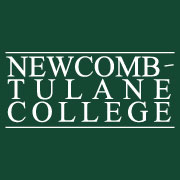Biliary Stents, their biofilm occlusion, and the frequency Endoscopic Retrograde Cholangiopancreatography that need to be done to compensate
Bile stents are put in 700,000 to 800,000 times globally per year. There are two types on bile stents on the market right now. There is a plastic bile stent that costs 2,000-3,000 for each procedure, but last for about 3-5 months due to bacterial build up. The other option is a metal bile stent that costs 9,000-12,000 each procedure but lasts twice as long. However, insurance will typically pay for the plastic stent due to the cheaper procedure cost. Our project has been working on making a bile stent that has the benefits of both. This stent will be low cost, and last longer by making a plastic bile stent with a certain additive to avoid bacteria build up.
Over the past year we have changed the material used, the shape and size of the polymer for the experiment, and our manufacturing technique. After many weeks of research, we found that our material was not the best option. Typically, people make bile stents with polyethylene, instead of polyurethane which is what we were originally using. In the beginning we were doing experiments with a circle cross section. However, the problem with bile stents is that bacteria will accumulate in the center on the tube. So, we started doing experiments with the additive embedded into polyethylene in a tube shape.
The help of Newcomb-Tulane College has made it easier when we need to buy something quick for the project. There were a few occasions where we needed tubing quickly. I feel that this project has helped my Tulane experience because, it has made me truly feel like a biomedical engineer. We have a lot of design classes, but this time, I am not getting a grade or on a timeline. This project is on my time, and I am excited to do it. It has made me more excited to be a biomedical engineer. Thank you for your grant funding and helping us in our pursuit to better the medical industry of today.
Written by Adrianna Aliquo, Dean’s Grant recipient, 2018-2019
